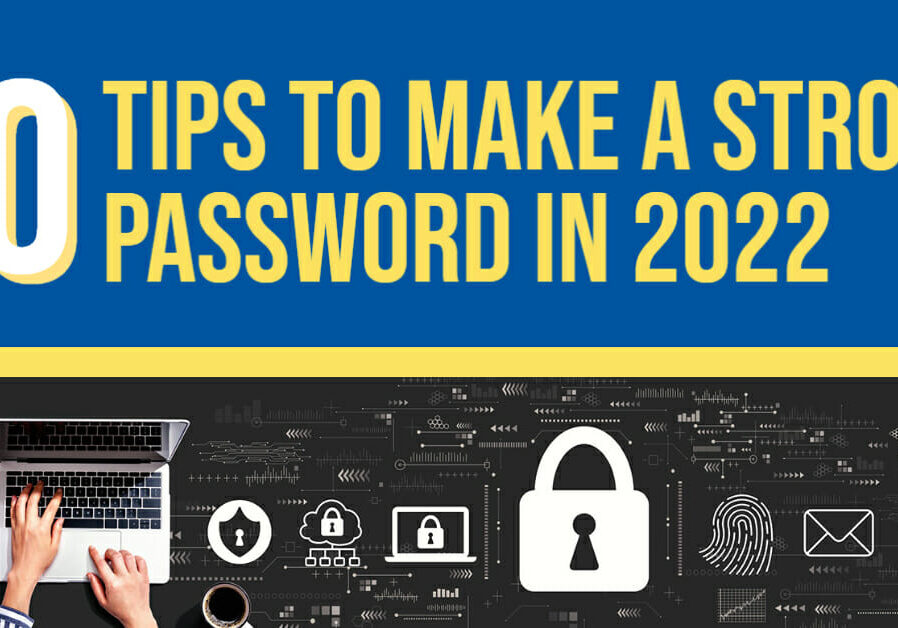10 Tips to Make a Strong Password in 2022
February 21, 2022
Research showed that 23 million account holders used the password “123456” in 2021. We get the appeal – it’s short, easy to remember and it’s one less thing you have to think about in your busy life. However, this is not a strong password to protect your digital identity.
Stop and consider it for a minute. Passwords are what keep your information protected and out of nefarious characters’ hands. Is “123456” really what you want between your private data, like bank information, and a hacker?
Don’t fret – we have good news! Below are ten Dos and Don’ts to help build an arsenal of crafty passwords that will be sure to provide you with the safety, security and protection you need.
How to Create a Strong Password:
DO
- Make your password long. 12-14 characters are recommended.
- Use a mix of characters like capitalization, symbols and numbers.
- Use a different password for every account. We mean every.
- Never share your password with anyone.
- Change it every 3 months.
DON’T
- Don’t use common substitutions (0 for O, or 1 for I, etc.).
- Don’t use real words (e.g. words that can be found in the dictionary).
- Don’t use important numbers like birthdays, anniversaries or your address.
- Don’t use the name of someone or something close to you (kids, spouses, pets etc.).
- Don’t state the obvious. No 12345678, qwerty or password!
Password Management
Did we say a different, strong password is needed for every account? Yes! The reason is simple: once a hacker has access to one account, he or she will have access to others if the password is the same.
How are you supposed to remember all those different passwords, especially if you can’t use your dog’s name or your birthday? One potential solution is to use a password management tool. This will store your credentials in one secure location using encryption. You no longer have to memorize logins or passwords and you can say goodbye sticky notes all over your desk.
Before making your choice, do thorough research on password managers so you’re familiar with the security features and the reputations of each. Some password managers offer free trials with the option of eventually upgrading to a paid plan.
In Conclusion
Passwords are tricky little devils to write, but that is exactly what they need to be – tricky. Take the time to create numerous good, unique, strong passwords that are sure to stump devious intruders. If you’re worried about forgetting all the complex passwords you’ve created, try out a password management tool.
After all, it’s your data. Do your part to protect it.
Learn more about user awareness materials Brite has to help educate the last line of defense.

Posted in Cybersecurity, Data Protection
